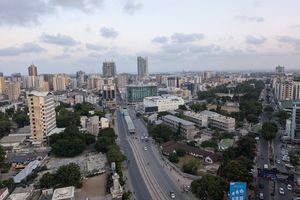THINKING ALOUD: Role of TCU in higher education governance in Tanzania
What you need to know:
- Tertiary education plays a critical capacity building and professional training role in support of economic development.
Higher education provides essential skilled human resource for both the formal and informal sectors of the economy, provides the means of developing the knowledge, skills, and productive capacities of the labour force, and acts as a catalyst in encouraging modern attitudes and aspirations.
Tertiary education plays a critical capacity building and professional training role in support of economic development.
Recently during the ceremony to open university students hostel, President Magufuli surprised all by directing that TCU should no longer be involved in the central admission and that students should have the freedom to apply to university of their choice and universities should select their applicants based on merit. I and perhaps all academicians, in the country applaud this long overdue directive. Apart from the freedom of choice there are many more reasons to this directive. Now TCU should focus on its advisory, regulatory, monitoring, and coordination role.
The advisory role include policy advice to government, advising government on whether to register new institutions or accredit new programmes, and advising institutions on possible improvements to their systems or practices.
The regulatory role includes the licensing or registration of new (often private) institutions, the accreditation of new and existing academic programmes, national programme reviews and determining the equivalence of qualifications as well as credit accumulation and transfer policies and procedures.
The monitoring role includes general trends over time, or specific developments measured against stated national goals or system targets and monitoring of “quality implementation” in higher education institutions after having set up quality assurance mechanisms. Finally, the coordination role could be seen as a role in itself, or as a dimension of the other roles (that is, the advisory, regulatory and monitoring roles).
In all these roles TCU should also include research that is implemented in all the institutions of higher learning
In the past 10 or 15 years there has been unparalleled rise of private universities something akin to “teaching shops” in the country. This had to happen because the demand for higher education has increased exponentially thus opening up of higher education to the private sector and it is a positive develop. It is important to take into consideration that these for-profits universities are not exploiting students but have helped to widen access. Thus it is desirable and important that all universities-public as well as private are regulated and monitored to protect systems and students from unscrupulous providers and assure quality but must also create the space for institutional diversity and innovation. This should be the role of TCU.
Our country needs science, not aid thus TCU should actively play a coordinating role to ensure universities are conducting cutting-edge research to tackle our problems and not doing research for the sake of promotion to next academic rank or being used by others through research funding to test new innovations that will never help our population. Make academia relevant and it is critical for university researchers to focus on the pressing challenges facing the country, from climate change to human rights to transformations in science and technology. The key is to develop vibrant outlets of knowledge production, and strengthen collaborations for our researchers within as well as with other international colleagues. This should be the role of TCU.
Harness the potential of e-learning and encourage massive open online courses (MOOCs) and online universities, these modes of education are revolutionizing learning and Tanzania has an opportunity to think deeply about providing quality education online, and figure out how to make it less costly and more interactive. This should be the role of TCU.
Stop neglecting science, technology, engineering and mathematics (STEM): Providing tertiary education in technical fields can be significantly more costly than social sciences, forcing cash-strapped public education institutions to reduce expansion in this area. This has contributed to higher education systems that are skewed towards the social sciences, rather than teaching applied science, engineering and technology skills, which the country urgently needs. This should be the role of TCU.
But don’t forget the social sciences: Social sciences have an important role to play here too. There are many stories of technological development not serving African communities because their needs weren’t understood. If we can envisage greater collaboration across the disciplines, technology and science can deliver on their promise and potential. Can teams of researchers include social scientists alongside natural scientists and engineers? This should be the role of TCU.
Ensure that all universities have appropriate teaching faculty and shuttling of lecturers or hiring from outside with dubious qualification is not there. This should be the role of TCU.
Improving higher education is a complex challenge, but essential to the country’s development. Corruption and nepotism have contributed to the failure of higher education in Tanzania. While the country needs quantity TCU should monitor the quality aspect. This should be the role of TCU.




